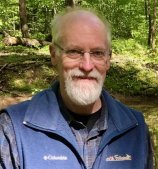Résumé
Baseline surveys are essential to assess long-term shifts in plant communities. In the early 2000s, we re-surveyed 293 sites of six forest types in Wisconsin, USA. Data from these sites, first surveyed in the 1950s, allowed us to infer long-term shifts in diversity and abundance of 292 species. Statewide, more species decreased in abundance (63%, and 68% of native species) than increased (37% of species, including most non-native species). Native species declined, on average, by 41% while non-native species increased by 584%. Many animal-pollinated wildflowers declined conspicuously, while abiotically pollinated graminoids and some ferns tended to increase. Among native species, those with zygomorphic flowers (specialized pollinators) declined more in abundance. Among non-native species, those with abiotic pollination showed smaller increases. Declines were greater in smaller, more fragmented southern upland forest patches, reflecting a continuing extinction debt. Small remnant grasslands experienced even higher species losses and stronger area effects. Larger, more continuous forests in northern Wisconsin retained plant diversity better but deer herbivory has shifted their composition. Understanding how diversity and traits shifted across sites and communities helps illuminate the mechanisms driving changes in diversity and pollinator resources in temperate forests.

